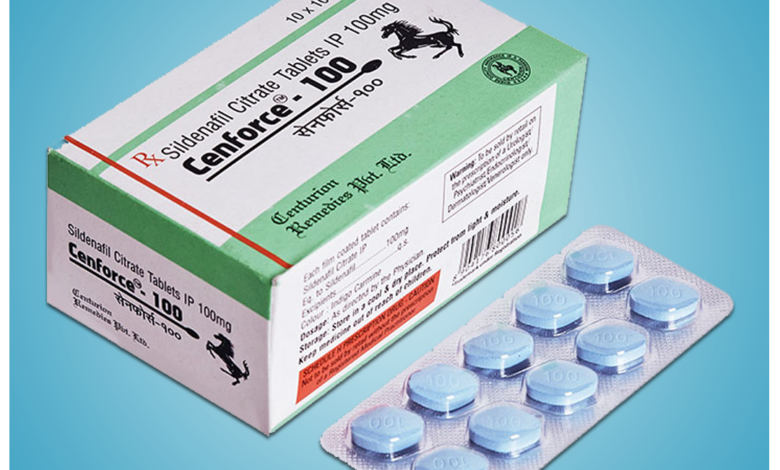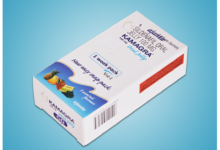Book Your Cenforce Professional 100 mg Pills Online Today and Get Amazing Discounts on MRP

Millions of men around the world suffer from sexual problems, especially erectile dysfunction (ED) or impotence; They frequently find it difficult to achieve and maintain a firm penile erection. This is all thanks to medical advancement, as we now have medications such as Cenforce Professional pills to fight such medical conditions.
Cenforce Professional 100 is a brand name pharmaceutical drug approved by the FDA. Cenforce Professional contains sildenafil citrate salt, a vasodilator medication that inhibits the PDE-5 enzyme. It is most commonly prescribed to patients ages 18 to 65 who are experiencing symptoms of erectile dysfunction.
The active pharmaceutical ingredient (API) in Cenforce Professional 100 is the pharmaceutical compound called Sildenafil Citrate.
Cenforce Professional 100 contains 100 mg of sildenafil citrate salt, which is a PDE-5 inhibitor; It is effective in producing cGMP, which in turn causes blood vessels to dilate which again allows more and more blood to flow into the penis.
Hence this medicine is primarily known to help people suffering from erectile dysfunction. To achieve and maintain a strong penis erection for optimal intercourse and pleasure enough.
Cenforce Professional 100 should be taken 30 to 45 minutes before sex.
Once taken, the Cenforce Professional 100 tablet should not be taken again within 24 hours.
Its effectiveness lasts about four to five hours.
Men ages 18 to 65 can take cenforce Professional once daily, approximately one hour before intercourse, as a single dose.
However, it is always advisable to go for a doctor's consultation when it comes to taking the dosage of any medication.
Each Cenforce pill is based on sildenafil citrate; Which inhibits the action of the enzyme phosphodiesterase type 5, a substance naturally found in the corpora cavernosa of the penis. It relaxes the blood vessels in the penile area, allowing more blood to flow and creating a firm erection of the penis.
- Nasal congestion
- Influenza syndrome
- headache
- dizziness
- Vision changes or abnormal vision
- Color blindness
- Skin rash
- Back pain
- Diarrhea
- Flushing
- dyspepsia
- Respiratory infection
- Muscle aches or pains
- Nosebleeds
- Diarrhea
- Difficulty or difficulty breathing
- Pain or tenderness around the eyes and cheekbones
- Skin redness
- Sneezing
- – Stomach discomfort after meals
- Congestion or runny nose
- Disturbed sleep
- Unusually warmer skin
Men with the following medical conditions should avoid taking Cenforce tablets:
- Kidney dysfunction
- Lung disease
- Priapism
- Liver disease
- Retinitis pigmentosa
- Epileptic disorders
- Patients with a medical history of kidney, liver or heart problems.
- Patients with frequent fluctuations in blood pressure.
However, they can always consult a doctor and make the decision wisely.
- Avoid taking antibiotics or antiviral medications, and talk to your doctor about alternatives
- Avoid low blood pressure medications and consult your doctor
- Any compounds derived from nitrates
- AIDS pills for HIV
- Grape juice, alcohol and drugs are strictly prohibited
- You should also avoid any hallucinogenic drugs
- You should also cut down on smoking cigarettes









